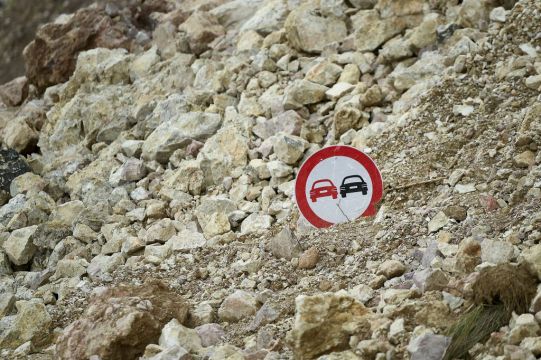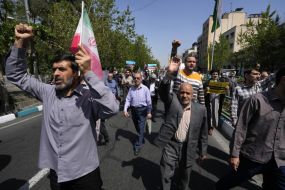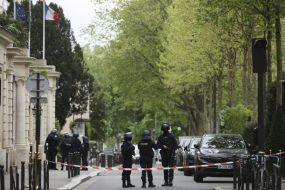Tensions have been growing in Haiti over the slow pace of aid reaching victims of a powerful weekend earthquake that killed more than 2,100 people and was trailed by the drenching rain of Tropical Storm Grace.
Aid has trickled in, but distributing food and getting urgent medical care to those in need is another matter amid the deep poverty, insecurity and lack of basic infrastructure that characterised Haiti before the back-to-back disasters.
A major hospital in the capital of Port-au-Prince, where injured from the earthquake zone in the southwestern peninsula were being sent, was closed for a two-day shutdown to protest the kidnapping of two doctors, including one of the country’s few orthopaedic surgeons.
The tension is increasingly evident in the area hit hardest by Saturday’s quake.
At the small airport in the southwestern town of Les Cayes, people thronged a perimeter fence Wednesday as aid was loaded into trucks and police fired warning shots to disperse a crowd of young men.
Angry crowds also massed at collapsed buildings in the city, demanding tarps to create temporary shelters after Grace’s heavy rain.
Haiti’s Civil Protection Agency late Wednesday raised the number of deaths from the earthquake to 2,189 and said 12,268 people were injured.

Dozens are still missing.
The magnitude 7.2 earthquake destroyed more than 7,000 homes and damaged more than 12,000, leaving about 30,000 families homeless, according to official estimates. Schools, offices and churches also were demolished or badly damaged.
One of the first food deliveries by local authorities, a couple dozen boxes of rice and pre-measured, bagged meal kits, reached a tent encampment set up in one of the poorest areas of Les Cayes, where most of the one-story, cinderblock, tin-roofed homes were damaged or destroyed.
But the shipment was clearly insufficient for the hundreds who have lived under tents and tarps for days.
“It’s not enough, but we’ll do everything we can to make sure everybody gets at least something,” said Vladimir Martino, a camp resident who took charge of the distribution.
Gerda Francoise, 24, was one of dozens who lined up in the wilting heat for food.
“I don’t know what I’m going to get, but I need something to take back to my tent,” said Ms Francoise.
“I have a child.”

International aid workers said hospitals in the worst-hit areas are mostly incapacitated, requiring many to be moved to the capital for treatment.
But reaching Port-au-Prince from the southwest is difficult under normal conditions because of poor roads and gangs along the route.
Even with a supposed gang truce following the earthquake, kidnapping remains a threat, underscored by the seizure of the two doctors working at the private Bernard Mevs Hospital in Port-au-Prince, where about 50 quake victims were being treated.
The country’s prime minister Ariel Henry said Wednesday his administration will try not to “repeat history on the mismanagement and coordination of aid”, a reference to the chaos after the country’s devastating 2010 earthquake, when the government and international partners struggled to channel help to the needy amid the widespread destruction and misery.
Meanwhile, the Core Group, a coalition of key international diplomats from the US and other nations that monitors Haiti, said in a statement that its members are “resolutely committed to working alongside national and local authorities to ensure that impacted people and areas receive adequate assistance as soon as possible.”
Distributing the aid to the thousands left homeless will be challenging.
“We are planning a meeting to start clearing all of the sites that were destroyed, because that will give the owner of that site at least the chance to build something temporary, out of wood, to live on that site,” said Serge Chery, head of civil defence for the Southern Province, which covers Les Cayes.
“It will be easier to distribute aid if people are living at their addresses, rather than in a tent.”

Mr Chery said an estimated 300 people are still missing.
While some officials have suggested an end to the search phase so that heavy machinery can clear the rubble, Mr Henry appeared unwilling to move to that stage.
“Some of our citizens are still under the debris. We have teams of foreigners and Haitians working on it,” he said.
He also appealed for unity.
“We have to put our heads together to rebuild Haiti,” Mr Henry said.
“The country is physically and mentally destroyed.”







